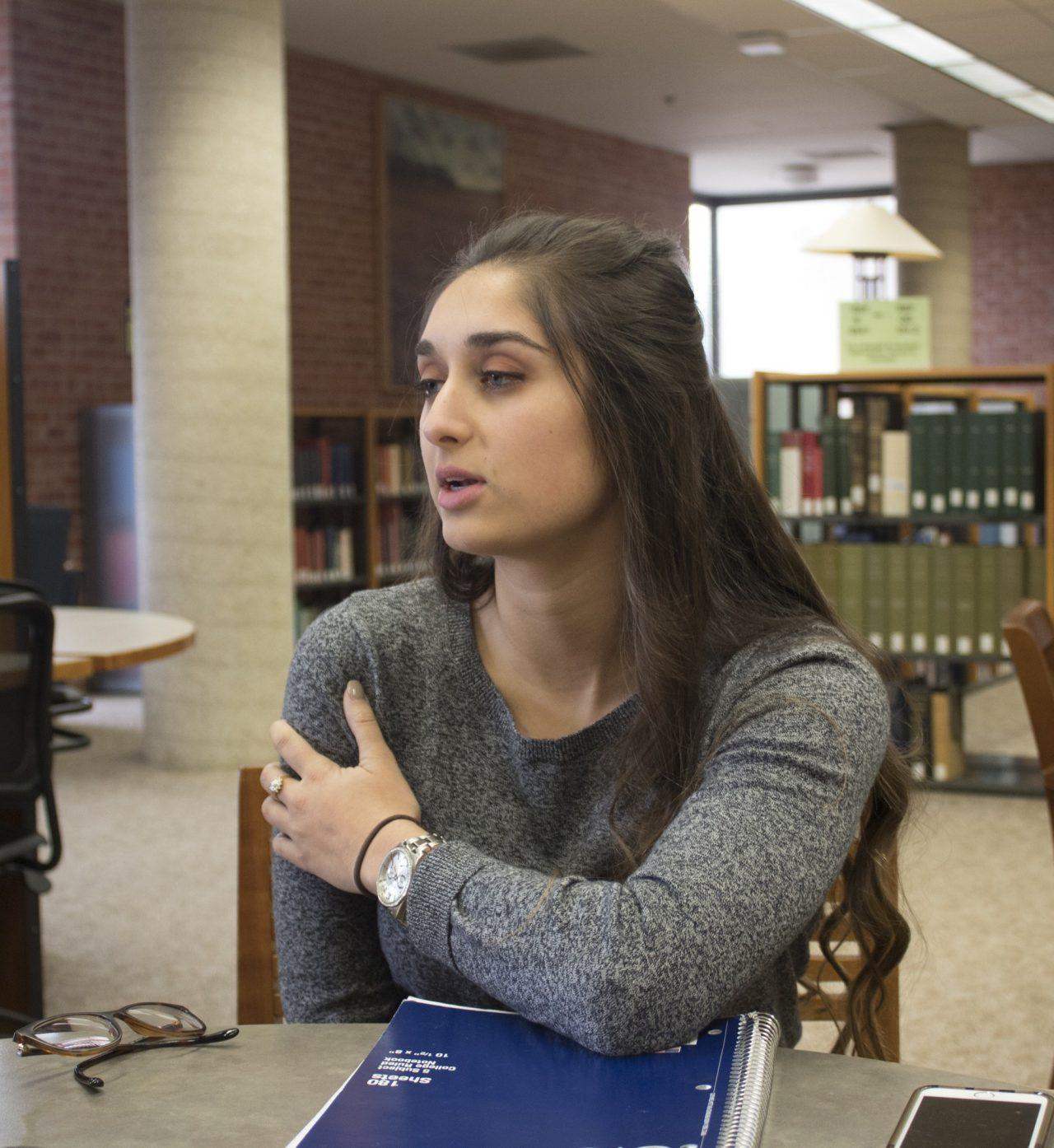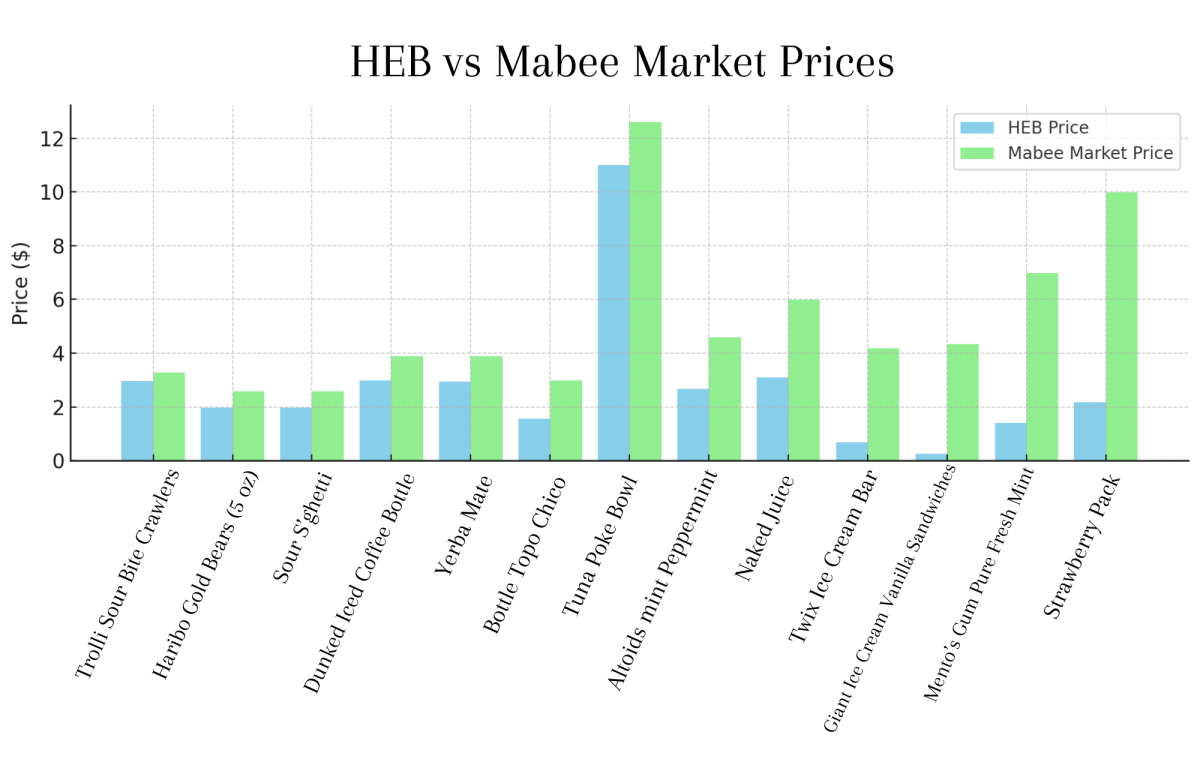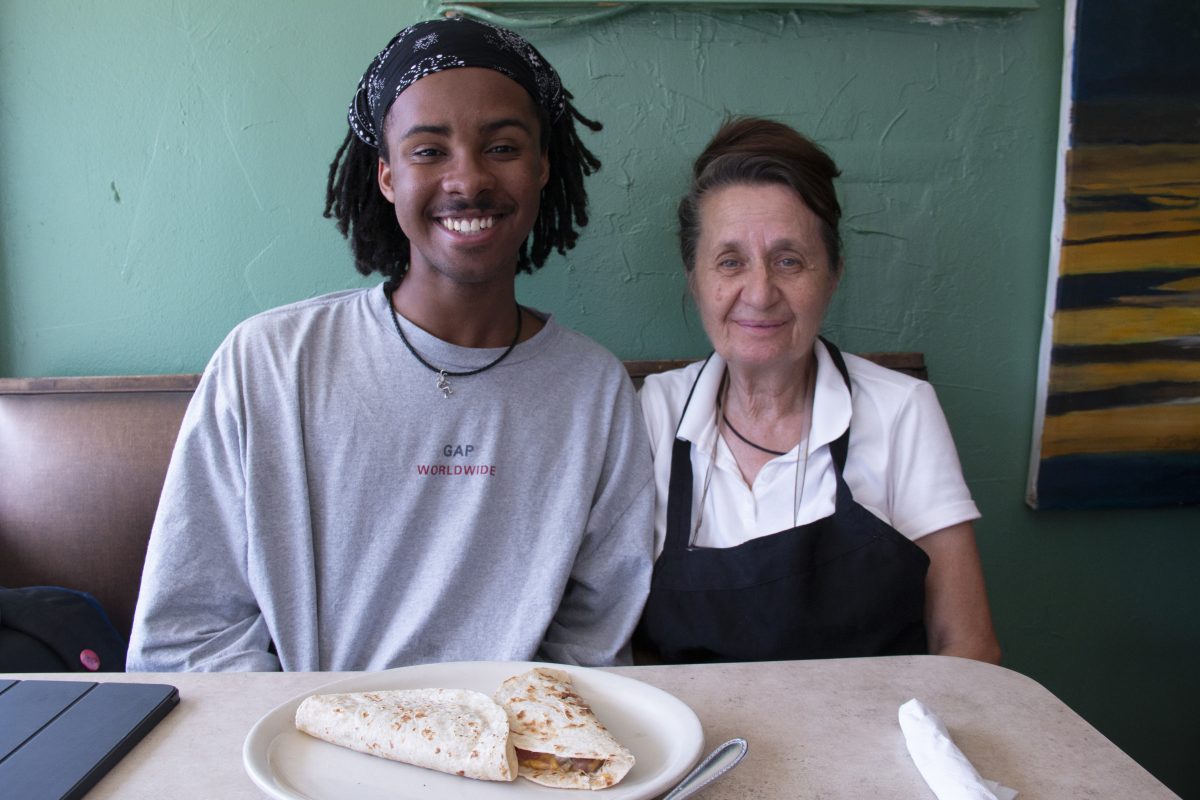Photo by Matthew Claybrook
Senior history major Nina Nevill completed her senior capstone as a sophomore, but her academic accomplishments don’t end there. For the past two years, Nevill and Carey Latimore, associate professor of history and former co-chair of African American studies at Trinity, have been compiling a book about San Antonio’s civil rights era, with oral interviews as the primary source.
Latimore’s project started around 2016, when he was part of the Bexar County Historical Commission, which preserves and archives San Antonio history.
“I found out that Bexar County doesn’t have a lot of resources about African American life,” Latimore said. “I wanted to elevate the number of interviews and representations we have of the African American community. That also fit into my larger idea, to write a book on the African American experience in San Antonio, from the World War II era up somewhere close to the present, to see the contributions of African Americans and what life was like here.”
Nevill took the African American Experience and other history classes with Latimore, who later became her faculty adviser. Latimore encouraged her to take her senior capstone as a sophomore — something that Nevill said is almost unheard of at Trinity.
“[Latimore] was considering taking a sabbatical during my senior year, and I knew I wanted to do my capstone with him as a professor. … Getting that high-level [research] exposure early definitely helped me as a writer and as a researcher,” Nevill said.
After working with Latimore during her senior capstone, Nevill decided to work with Latimore on a book project about the civil rights era in San Antonio.
“The main goal of the project [was] to distinguish why the civil rights era was different in San Antonio [as opposed to] other typically Southern or Western cities where we see different levels of discrimination, segregation,” Nevill said.
The team received a grant from the Mellon Initiative, which gives fellowships to students to do research in the humanities with professors over the summer.
Lauren Turek, assistant professor of history, serves on the Mellon Initiative Steering committee, which decides which Mellon research projects to fund each semester.
“This is exactly the kind of project that we’re really excited about funding because here is a student who’s doing cutting-edge research using this oral history method,” Turek said. “Not only is [Nevill] learning a tremendous amount about the history of civil rights, she’s contributing to a published product that this faculty member is working on.”
The project focuses on oral interviews as the primary source, with some archival materials — including from Trinity’s Special Collections — as secondary sources.
“[Interviews] have been mostly with members of the African American community here in San Antonio, but we really branched out in terms of trying to get Latina, Latino, white, men, women, old and young [subjects],” Nevill said.
The majority of Latimore and Nevill’s interview subjects are over 60 — old enough to have first hand memories of the civil rights era and even earlier in some cases.
“We interviewed a 98-year-old World War II veteran named Mack Thomas. He had been to the Philippines during the war, and he listed the individual locations where he travelled … I can barely remember where I go a week ago, but he could remember these small towns from 60 or 70 years ago,” Latimore said. “We also interviewed a couple of Freedom Riders … They traveled [during the civil rights era] to ride buses that were trying to integrate the areas, and were placed in prison for their work.”
Nevill said that the older age of the subjects makes their recording endeavor more important.
“For us it’s really important to capture [these stories] and to be able to tell them in a way that gives back to San Antonio as a community, as well as [subjects’] families, who maybe won’t have something like this recorded,” Nevill said.
Though Latimore’s research will continue for a number of years, Nevill expects to take a break after graduating and entering graduate school. However, the duo was able to draw some conclusions from their research.
“So far it seems that San Antonio was different [from other cities] because of its trichotomy of culture — so instead of just having an African American and a white population, having a Latino population in the mix meant that society functioned differently in terms of discrimination and race and color,” Nevill said. “Perhaps there was less discrimination and segregation than [other] ‘typically Southern’ cities because of this trichotomy.”
Nevill plans to study African American history in graduate school and has already been accepted into Rice University, although she is waiting to hear back from other schools. Nevill said that while it often takes people seven to ten years to complete their graduate school dissertations, she plans to complete hers in five.
As far as careers go, Nevill is still weighing her options.
“I’d love to be a professor of history, of African American history specifically — that would include a lot of reading, writing, research, you know, the whole nine yards,” Nevill said. “I’ve [also] had an interest over the past three years in being a special agent for the FBI, or perhaps doing work for the CIA, kind of using my skills in history, analytical, synthesis … I think I have a little bit more time to come to a conclusion.”
Nevill gave advice to other students interested in research opportunities.
“My advice is [to] absolutely seek out those opportunities, talk to your professors as early and as young as you can possibly do it, because it will hopefully ignite a passion or an interest in you and potentially put you ahead in the field,” Nevill said. “Once you take that first step, it’s like a snowball effect. … But you have to put in the effort. You have to be the one to be willing to do the work and be excited to do the work.”







